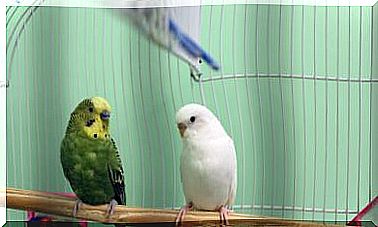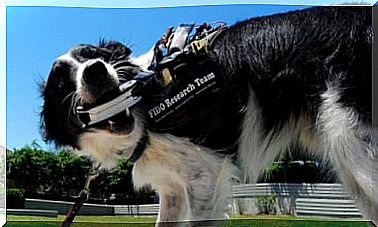Are There Anxiolytics For Dogs?

Anxiety is a sensation known to all, and it manifests itself in different ways depending on the person and its severity. It is surprising to know that pets can also suffer from it in a very common way, and that there are special medications to alleviate this chronic nervousness when it gets out of control. Here we show you the anxiolytics for dogs and when to use them.
Symptoms of anxiety in dogs
As always, in the face of any behavioral or physiological change, going to the vet is always the first option. Even so, there are a series of symptoms that may indicate that the dog is suffering from some type of anxiety disorder:
- Destructive behaviors, such as tearing clothing or breaking furniture.
- Defecation and urination indoors, despite being used to doing it during walks.
- Continuous barking, howling and moaning.
- Hyperactivity despite having done physical exercise during the day.
- Tremors, possessive behaviors, and even eating your own feces to get attention.
If the dog exhibits some of these behaviors together in a short period of time, it is very possible that he is suffering from anxiety.

Anxiolytics for dogs
Benzodiazepines are psychotropic drugs (which act on the central nervous system) with sedative, anxiolytic, amnesic and muscle relaxant effects.
In summary, it can be said that these drugs are very selective depressants of the nervous system, and that they act mainly on the limbic system, a brain complex that regulates physiological responses to various stimuli.
Benzodiazepines are commonly used in humans, always with a prior medical prescription, as they can lead to addiction. These drugs are also used in anxiety and nervousness in dogs, but always in concentrations different from those given to humans.
These types of compounds, such as diazepam or alprozolam, have relaxing and sedative effects on the animal. Thus, episodes of nervousness, aggressiveness, or conflictive behaviors can be avoided. They are usually administered orally through specific pills for dogs, although in critical cases the veterinarian can introduce them into the animal’s body intravenously.
A drug with reservations
Although these drugs may seem miraculous, just like in humans, there are advantages and disadvantages to administering them. Some of the adverse effects may be the following:
- They interfere with the behavior and learning of the animal: it can be more tired, less stimulated by games, and less willing to follow orders. After all, benzodiazepines are depressants of the nervous system.
- Its very long use can generate dependency.
- These medications are contraindicated in pregnant females, puppies, elderly dogs, or with liver, heart or kidney disease.
Therefore, it will always be the veterinarian who prescribes this type of drug. It is important to note that there are other alternative treatments for anxiety in dogs, and we will show you below.
Other possible solutions
Not everything comes down to pharmacological anxiolytics, because more and more, other possible less addictive remedies are being explored:
- Pheromones are increasingly being used as tranquilizers for dogs. They have no contraindications described, and can be administered by sprays, necklaces or tablets.
- Natural substances such as valerian, chamomile or oatmeal can be effective as long as they are prescribed by a specialist. Be careful, because in inappropriate concentrations or if the dog has other pathologies, these natural substances can have adverse effects.
- There are also nutritional supplements based on proteins, relaxing plants and vitamins that can have a certain sedative effect on the animal in the long term.

A necessary clarification
It is necessary to clarify that anxiety, both in dogs and in humans, must be treated both pharmacologically and psychologically. It is useless to administer pills to the animal if the reason for the pathology is not understood, and much less if the necessary changes are not made so that this sensation disappears over time.
Anxiety can have different causes: from trauma to lack of exercise, constant noise, or little attention from the tutor. Depending on the severity of the underlying reason, ending anxiety will be easier or more complex, but it will always have to be done in the hands of a specialist.









